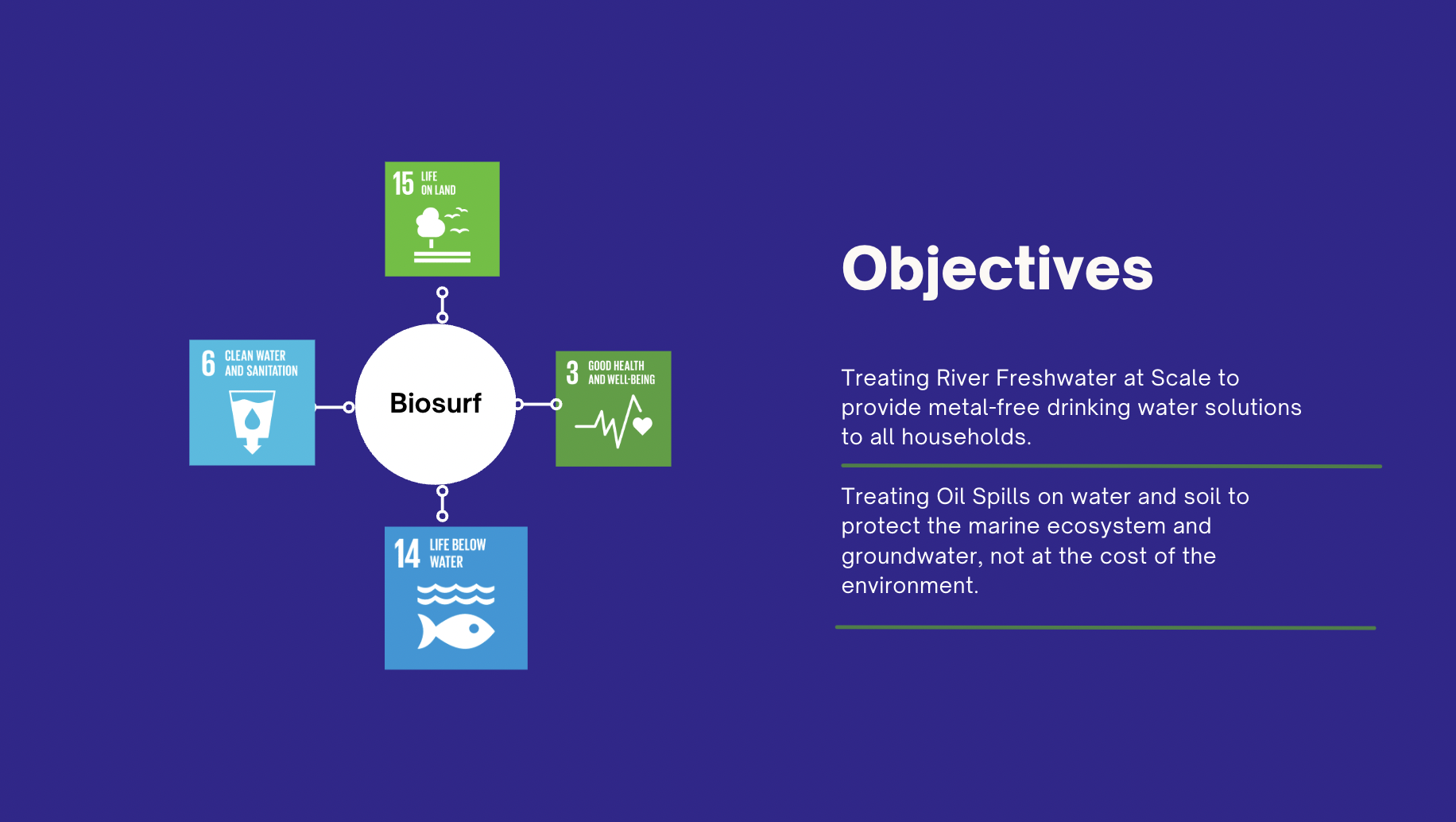UN Sustainable Development Goals
The Sustainable Development Goals (SDGs) are a set of 17 interconnected global objectives established by the United Nations in 2015. They provide a comprehensive blueprint to address the world's most pressing social, economic, and environmental challenges by the year 2030. These goals encompass a wide range of critical issues, including poverty alleviation, environmental protection, gender equality, and access to quality education.
The SDGs represent a universal call to action, urging governments, businesses, communities, and individuals to work collaboratively to create a more equitable, sustainable, and prosperous future for all. These goals serve as a global roadmap, guiding efforts to combat poverty, reduce inequality, and ensure the responsible stewardship of our planet's resources.

SDGs That Our Project Is Helping to Achieve
Our project, titled Biosurf, explores bioremediation of heavy metal ions from waste water using biosurfactants. It is dedicated to addressing one of the world's most pressing environmental challenges, the contamination of water sources with heavy metal ions. Our project harnesses bioremediation techniques, utilizing biosurfactants developed by genetically engineering E. coli to efficiently remove harmful heavy metals from wastewater. In doing so, Biosurf actively contributes to several key SDGs, aligning with the global endeavor to build a sustainable and inclusive future.

SDG 6: Clean Water and Sanitation
Why it Matters:
Access to clean and safe drinking water is not only a fundamental human right but also a crucial component of human well-being. It is essential for hydration, sanitation, and overall public health. However, millions of people worldwide still lack access to clean water sources and proper sanitation facilities, leading to preventable illnesses and loss of life.
Biosurf Contribution: Our project directly addresses SDG 6 by developing an eco-friendly and efficient method to treat wastewater contaminated with heavy metals. By removing these toxic substances, we work towards cleaner and safer water sources, enhancing access to safe drinking water worldwide. Biosurf plays a vital role in advancing SDG 6 by focusing on the treatment of wastewater contaminated with heavy metals, a significant threat to water quality and public health. Through our innovative approach utilizing biosurfactants for bioremediation, we effectively remove heavy metal ions from wastewater. This process not only improves water quality but also enhances the availability of clean and safe drinking water sources. Few specific ways in which Biosurf contributes to SDG 6 include:
Preventing Waterborne Diseases: In regions where access to clean water is limited, the risk of waterborne diseases is higher. By removing heavy metals and contaminants from wastewater, Biosurf actively mitigates this risk, contributing to the prevention of waterborne diseases and related health issues.
Community Empowerment: Biosurf's sustainable and cost-effective bioremediation approach can be implemented in various communities, providing them with a tool to improve their own water quality and sanitation. This empowers communities to take control of their well-being and access to clean water.
Environmental Impact: Our project not only benefits human health but also helps preserve ecosystems. By reducing heavy metal pollution in water bodies, we protect aquatic life and the broader environment, aligning with the goal of sustainable water management